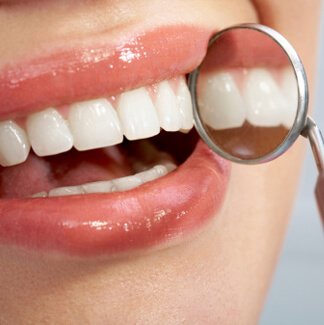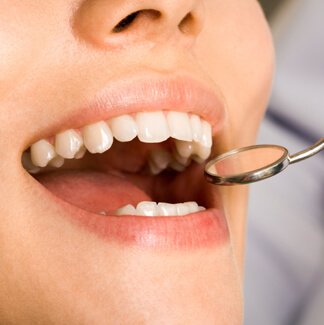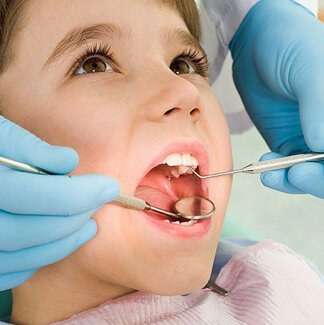Treatments
Advice & Screening
What is preventive dentistry?
Preventive dentistry will help you keep a healthy mouth, keep your teeth for longer and have less dental treatments. Your dentist and/or hygienist will carry out an assessment and investigative tests to. This will allow them to tailor treatment and advice to your exact needs and arm you with the knowledge and skills to minimise the chance of these conditions occurring.
Screening
Each time you visit the dentist or hygienist they are looking for early signs of tooth decay, gum disease, signs of mouth cancer or other mouth sores and even tooth wear.
Can everybody benefit from preventive dentistry?
Yes. Preventive dentistry will benefit anyone, even those that don’t have any teeth. This is because conditions such as mouth cancer and denture stomatitis can be spotted during regular visits to the dentist and then treated. It is obviously very important for children, but it is never too late to start.
Will my dentist recommend treatment?
A ‘preventive dentist’ will often recommend a procedure to strengthen a tooth to make sure it does not break. For example, if the dentist sees that a tooth is cracked or is weak and in danger of breaking, then you will be advised about having a new filling or perhaps a crown or ‘onlay’ to protect it. This is always better than waiting until the tooth breaks, and then dealing with it as an emergency. Another important preventative is fissure sealants.
Use of Fluoride
Fluoride helps teeth resist decay. If your dentist thinks extra fluoride would be useful, they may recommend applying a fluoride varnish. They may also suggest fluoride rinses, tablets or drops to use at home as an extra help against decay. Children up to three years old should use a toothpaste with a fluoride level of at least 1000ppm (parts per million). Three-year-olds to adults should use a toothpaste that contains 1350ppm to 1500ppm of fluoride.


Diet advice
Food and drinks containing sugar cause decay. If you cut down on how often you have them in your diet, then this will help a lot and substitute them with items such as cheese, fruit, nuts and vegetables which are much better for your teeth
Dental erosion is the loss of enamel caused by acid attack. When the enamel is worn away it can lead to pain and sensitivity. Foods and drinks that contain acid, such as citrus fruits, fizzy drinks, smoothies, fruit juice and fruit teas can all cause dental erosion if you consume them. Try to keep acidic food and drinks to meal times and drink acidic drinks through a straw.
We recommend that you do not brush your teeth for at least one hour after eating or drinking anything. Every time you eat or drink, the enamel on your teeth becomes softer for a short while, and loses some of its mineral content. Waiting for an hour or so will allow your saliva to slowly restore it to its natural balance.
Chewing sugar-free gum makes your mouth produce more saliva and stops your mouth drying out, and can help to prevent dental decay and erosion.
Tobacco and alcohol
Smoking can cause tooth staining, tooth loss, mouth cancer and make gum disease worse. If you smoke you may need to visit the dentist or hygienist more often. Alcoholic drinks can also cause mouth cancer and if you smoke and drink then this makes you more at higher risk. Some alcoholic drinks contain a lot of sugar, even some mixed drinks may contain acids. So they can cause decay or erosion if you drink them often and in large amounts.
Oral Hygiene
It is very important that you keep up a good routine at home to keep your teeth and gums healthy. We recommend that you:
Brush your teeth for two minutes twice a day with fluoride toothpaste. This means brushing them in the way that your dentist or hygienist has shown you.
Clean in between your teeth with ‘interdental’ brushes or floss as brushing alone only cleans up to about 60 percent of the surface of your teeth.
Use a mouthwash at a different time of day to when you clean your teeth. Many of them contain antibacterial ingredients to help prevent gum disease, and fluoride to help prevent decay. It can also help to freshen your breath.
Visit the dentist regularly
Regular visits to the dentist will allow you to keep on top of oral hygiene and also allow to the dentist to pick things up earlier rather than later. Often if an oral condition is picked up early, treatment is far simpler and less extensive, then if left to the later stages which can often mean tooth extraction is required.
Hygiene
What is a dental hygienist?
Dental hygienists are specially trained to work as part of the dental team, to give care to patients.
They play an important part in dental health care and are mainly concerned with preventive dental health and treating gum disease – showing you correct home care and helping to keep your teeth and gums healthy.
The hygienist’s main work is to prevent and treat gum disease including professionally cleaning your teeth. This is usually called ‘scaling and polishing’. However, perhaps their most important role is showing you the best way to keep your teeth free of plaque.
Plaque is a sticky coating that forms constantly on your teeth. If it is not brushed away properly, this hardens to form tartar which you cannot remove yourself. They also give advice on diet and preventing dental decay. The hygienist will work alongside your dentist to give you care that is tailored to your needs.
Can a dental hygienist do anything else?
Dental hygienists also take dental x-rays. The dentist will use these to help diagnose problems and decide on the possible treatment. All hygienists that take x-rays will have had proper training and will hold a certificate.
If the dentist suggests that you or your child have fissure sealants or fluoride varnishes, they may refer you to the dental hygienist because these are treatments they are trained to carry out.
Tooth whitening is also often carried out by the dental hygienist under the prescription of your dentist.
Does every practice have a hygienist?
No not every practice has a hygienist. Here at Wightwick dental Practice you can access regular care under the hygienist.
Why is this dental treatment important?
Regular professional cleaning, combined with looking after your teeth and gums well at home, will help keep your mouth healthy.
A clean and healthy mouth will improve your appearance, help you to keep your teeth and give you fresh breath, and help to maintain your general health.
Can a hygienist help prevent dental disease?
This is what the training of the hygienist is all about. Carefully removing the hard deposits of tartar (or ‘calculus’) that build up on the teeth and teaching you how to prevent them coming back, will go a long way towards slowing the progress of gum disease.
By talking to you about your diet, and recommending other preventive measures, the hygienist can help you keep to a routine that will slow down the rate at which your teeth decay.
Regular visits and advice will help build your confidence in keeping your mouth healthy.
Children’s Teeth
When should I take my child to the dentist?
It is recommended that children go to the dentist regularly with their parents as soon as possible. Normally we recommend from 3 years old, but you can bring them earlier if you want to. This will let them get used to the noises, smells and surroundings and prepare them for future visits. The earlier these visits begin, the more relaxed your child will be.

For further information, ask your Dentist our Hygienist
Treatments or call 01902 763 200


